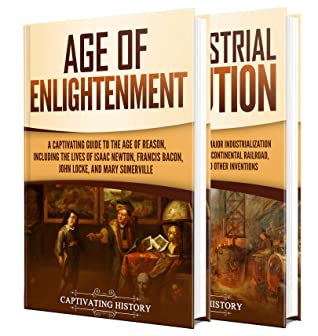

Most ebook files are in PDF format, so you can easily read them using various software such as Foxit Reader or directly on the Google Chrome browser.
Some ebook files are released by publishers in other formats such as .awz, .mobi, .epub, .fb2, etc. You may need to install specific software to read these formats on mobile/PC, such as Calibre.
Please read the tutorial at this link: https://ebookbell.com/faq
We offer FREE conversion to the popular formats you request; however, this may take some time. Therefore, right after payment, please email us, and we will try to provide the service as quickly as possible.
For some exceptional file formats or broken links (if any), please refrain from opening any disputes. Instead, email us first, and we will try to assist within a maximum of 6 hours.
EbookBell Team

0.0
0 reviewsTwo captivating manuscripts in one book:
«Age of Enlightenment: A Captivating Guide to the Age of Reason,
Including the Lives of Isaac Newton, Francis Bacon, John Locke, and Mary
Somerville».
«The Industrial Revolution: A Captivating Guide to a Period of
Major Industrialization and the Introduction of the Spinning Jenny, the Cotton
Gin, Electricity, and Other Inventions».
Enlightenment
philosophy then intensified the Industrial Revolution by changing the British
political system and guiding its deliberations. It was responsible, at least in part, for
bringing mercantilism to an end and replacing it with a more open and
competitive economic system.
As time went on, however, and the truths of scientific research and
exploration showed themselves time and time again, the collective perspective
of the population began to shift away from religious dogma toward the logical
scientific method.
The Enlightenment gained traction in the 17th century, and more emphasis
was given to scientific techniques in the schools, as well as to the separation
of religious and scientific data. Religious philosophies also became less
rooted in the exact words of the Catholic Church, as papal authority gave way
in many European countries to splinter groups of Christianity, such as the
Calvinists, Lutherans, and other types of Protestants.
Major figures of the Enlightenment period include Voltaire, Isaac
Newton, John Locke, Thomas Hobbes, David Hume, Jean-Jacques Rousseau, Adam
Smith, Immanuel Kant, and Thomas Jefferson. These and many other great thinkers
of the era influenced mass social upheaval in pursuit of equality and human
rights, and many historians consider the culmination of these efforts to have been the French
Revolution of 1789.